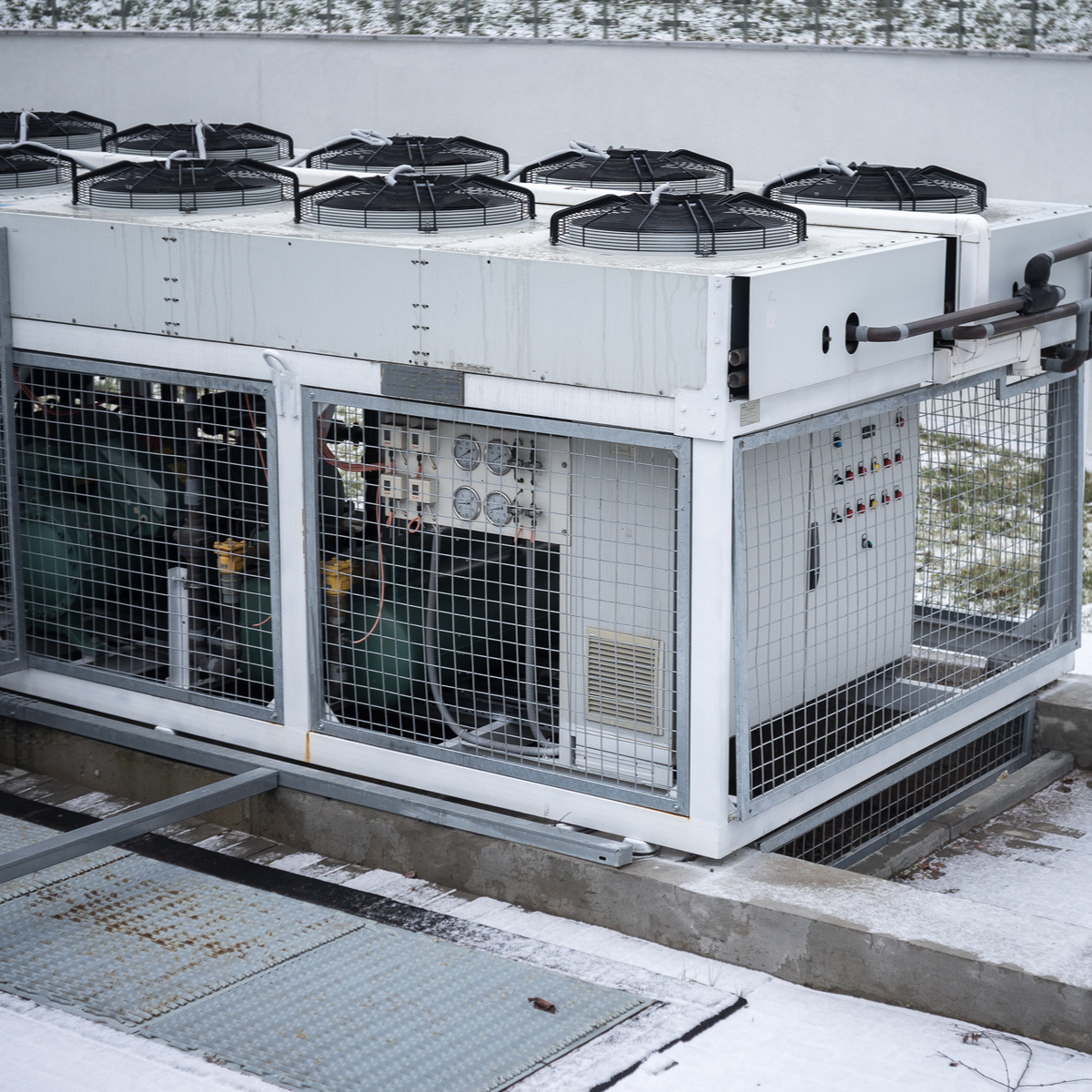
When the ground turns frosty and freezing winds start to howl, the last thing you probably want to think about is air conditioning, which is why you’re presumably preparing to get furnaces and boilers pumping heat into the work environment. However, being ready to turn off the AC doesn’t mean you can afford to neglect it throughout the long winter months. Dormant mechanical systems still need to be maintained, especially components that are outdoors and exposed to the elements.
When it comes to winter air conditioning maintenance, you don’t necessarily have to do much, but it is wise to stay on top of servicing to ensure that when warmer temperatures roll in, your system is ready to handle demand. Here are just a few tips for winter air conditioning preparations designed to ensure efficient performance and equipment longevity.
Related: Industrial HVAC Basics
Inspect the Entire HVAC System
Fall is typically designated as the time to inspect your furnace, boiler, or other heating equipment, but you should take the opportunity to examine your HVAC system as a whole. While your focus should certainly be on ensuring that your heating system is in good shape to serve your needs throughout the cold winter months, you should also take the time to inspect AC elements that have been laboring throughout the summer.
If repairs or replacement are necessary, you could tackle them now to prevent further damage, or at least put them on your to-do list for spring, when your AC inspection and maintenance is scheduled. You’ll also want to check and potentially replace soiled filters, which impact your entire HVAC system, and check blower fans that may be working overtime to compensate for clogged filters.
Additional Components
Check the freeze protection on glycol systems with a refractometer (be mindful of the freeze protection’s temperature and how your region’s climate will affect the temperature range). Glycol samples should be tested by an independent laboratory to confirm the freeze protection and the level of corrosion inhibitors, as well as the levels of solids and metals contained in the glycol loop. The lab will provide you with a detailed report and note any possible corrective recommendations.
Don’t forget to inspect the ductwork as well. The “V” in HVAC is often treated as less important than heating and air conditioning equipment, but proper ventilation helps to improve air quality, which is essential to the health and safety of the work environment. Ducts are responsible for delivering air, and if they’re beset by clogs, leaks, or other issues, the result could be weak airflow, poor ventilation, and rising utility costs.
Cooling towers, evaporative coolers, and outdoor chillers need to be tested, winterized, and/or shut down if they are not being used throughout the winter. Units that remain in operation will need their freeze protection components tested to confirm proper operation. Evaporative coolers and chillers will also need the glycol tested as previously stated.
Related: HVAC Fall Maintenance
Clean, Repair, and Replace
Your winter air conditioning and heating inspection may cover a wide range of elements, from rooftop AC units and cooling towers, to boilers and furnaces, to pumps, compressors, controls, and more. Whether you manage this maintenance in-house or you bring in professionals from a company like Tate Engineering, there are several steps essential to completing your seasonal service.
It starts with a thorough inspection, including cleaning elements that have become dusty or grimy through use or dormancy. During the course of your inspection, you’ll no doubt note deterioration and damage. You’ll have to determine whether wear and tear can be repaired, or if it’s time to replace components or schedule equipment upgrades. With proper maintenance and repair, your system will enjoy the greatest performance and longevity, saving money in the long run.
To Cover or Not to Cover
Generally speaking, it is not recommended that you cover outdoor AC units as part of your winter air conditioning preparations. This equipment is designed to withstand extreme weather conditions, and units are made to be open to the air. In fact, fully covering a unit can lead to problems like moisture and lack of air flow that encourage mold growth, as well as rodent infestations that result in chewed wires and an abominable mess.
However, if you have had problems in the past with excessive debris clogging your system during the fall and winter months, or water resting on coils and freezing, you may want to consider covering just the top of the unit. This can keep water and debris from getting in without blocking airflow, helping you avoid the potential pitfalls associated with full coverage.
Don’t forget that our expert team is always here to help. If you want some help with keeping your systems maintained, or need any tips and tricks, contact our experts today.
